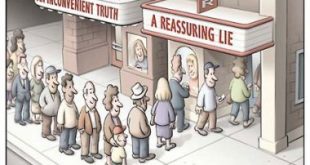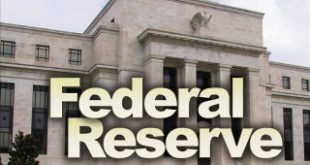The wisdom of crowds [embedded content] A classic demonstration of group intelligence is the jelly-beans-in-the-jar experiment, in which invariably the group’s estimate is superior to the vast majority of the individual guesses. When finance professor Jack Treynor ran the experiment in his class with a jar that held 850 beans, the group estimate was 871. Only one of the fifty-six people in the class made a better guess. There are two lessons to draw from...
Read More »The Bitcoin Standard – a critical review
For over a century now, the world has lacked a genuinely international means of payment. This is partly due to decisions made at the Bretton Woods conference in 1944, when the US dollar was adopted as the principal international settlement currency, rather than John Maynard Keynes's suggestion of an independent global currency that he called "bancor". Although the Bretton Woods gold-backed structure ended in 1971, the US dollar became ever more dominant. In 2008, the dollar's global reach...
Read More »Keynesian uncertainty
In “modern” macroeconomics — Dynamic Stochastic General Equilibrium, New Synthesis, New Classical and New ‘Keynesian’ — variables are treated as if drawn from a known “data-generating process” that unfolds over time and on which we therefore have access to heaps of historical time-series. If we do not assume that we know the “data-generating process” – if we do not have the “true” model – the whole edifice collapses. And of course, it has to. Who really honestly believes that...
Read More »Come back and stay
Come back and stay [embedded content] Advertisements
Read More »The gender pay gap
The gender pay gap Julian Jessop has a point when he says these gaps might not reflect overt discrimination by employees. They might instead be due to women sorting into lower-wage jobs. Airlines, for example, have big gender pay gaps because women tend to be low-paid cabin crew whilst men are higher-paid pilots. Such gender-based preferences, however, are NOT the end of the story. For one thing, as Sarah O’Connor says, employers might perhaps do more to...
Read More »How to get published in top economics journals
How to get published in top economics journals By the early 1980s it was already common knowledge among people I hung out with that the only way to get non-crazy macro-economics published was to wrap sensible assumptions about output and employment in something else, something that involved rational expectations and intertemporal stuff and made the paper respectable. And yes, that was conscious knowledge, which shaped the kinds of papers we wrote. Paul...
Read More »Modern Money Theory (MMT) vs. Structural Keynesianism
1. What are the major flaws you see within Modern Monetary Theory? (A) I like to say that MMT is a mix of “old” and “new” ideas. The old ideas are well known among Keynesian economists and are correct, but the new ideas are either misleading or wrong. The essential old idea, which everybody knows, is [...]
Read More »Keynes vs. Keynesianism
But these more recent writers like their predecessors were still dealing with a system in which the amount of the factors employed was given and the other relevant facts were known more or less for certain. This does not mean that they were dealing with a system in which change was ruled out, or even one in which the disappointment of expectation was ruled out. But at any given time facts and expectations were assumed to be given in a definite and calculable form; and risks,...
Read More »La Prudenza della Federal Reserve
La Prudenza della Federal Reserve Alla sua prima uscita ufficiale di fine febbraio al Congresso, il presidente della Federal Reserve, Jay Powell, aveva parlato di un’economia col “vento in poppa”. Ma se qualcuno, a caldo, vi aveva scorto il segnale di una più rapida risalita dei tassi d’interesse, il mercato non sembra crederci poi troppo. Da febbraio, il rendimento dei titoli federali a medio-lungo termine (che rispecchia le aspettative sulla futura...
Read More »Involuntary unemployment — a Keynesian ‘impurity’
Samuelson’s reconciliation of the micro-economic ideal type with involuntary unemployment was repudiated, along with Keynesian prescriptions, in favor of a view that there could be no involuntary unemployment , hence that government action was unnecessary. The result was a doctrinaire derivation of the laissez-faire conclusions that had been overturned by the formalist revolution; economics was now cleansed of Keynesian impurities that had been introduced in the interest of...
Read More » Heterodox
Heterodox








